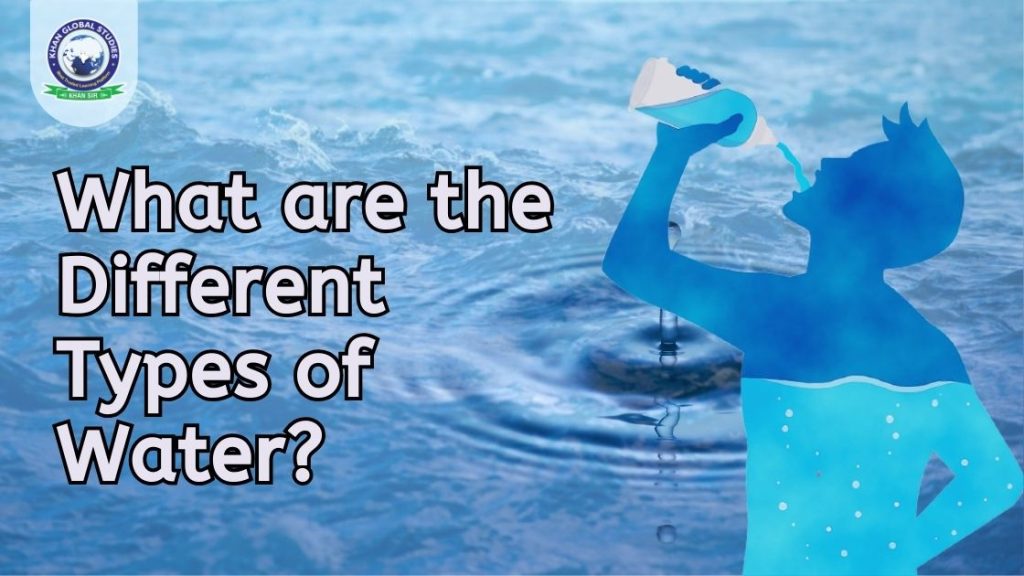Water is an essential natural resource for life. It is at the core of sustainable development and is vital for socio-economic development, energy and food production, healthy ecosystems and human survival. In this article, we will discuss about various types of water.
Different Types of Water
There are different types of water based on chemical, physical and biological characteristics. The main types of water are:
1. Drinking Water
Potable water or potable water is water suitable for human consumption, which has been properly treated and can be consumed without any risk. It is clear and transparent, has no unpleasant odour or taste and is free from any contaminants.
2. Fresh Water
Fresh water exists naturally as ice on the Earth’s surface, as water in wetlands, ponds, lakes, rivers and springs, and as groundwater in aquifers. It generally has a low concentration of dissolved salts and solids.
3. Salt Water
It is also called sea water, which is found in the Earth’s oceans and seas. The concentration of dissolved salts in it is about 3.5%.
4. Brackish Water
The salinity of saltwater is somewhere between freshwater and seawater. The salinity of salt water is not precisely defined; This can range between 0.5 to 30 grams of salt per litre.
5. Hard Water
Hard water has a high mineral content, especially magnesium and calcium salts. It is also known as calcareous water.
6. Soft Water
Cold water contains very small amounts of dissolved salts. It can be defined as water that contains less than 50 milligrams of calcium carbonate per litre.
7. Distilled Water
Distilled water is made up of H2O molecules that have been purified or cleared through distillation.
8. Waste Water
Wastewater is any type of water whose quality has been negatively affected by human activity. According to FAO, water has no immediate value for the purpose for which it is used or produced, its quality, quantity or the moment at which it is available.
9. Black Water
Among the different types of water used, black waters are those that are polluted by faeces or urine.
10. Grey Water
Grey water is domestic wastewater. It contains less nitrogen and phosphorus than black water and contains organic and inorganic substances and microorganisms. Grey water gets its name from its dirty appearance and is somewhere between potable freshwater and wastewater.
11. Raw water
Raw water is water that has not been treated. It is found in natural sources and reserves, surface and groundwater bodies.




